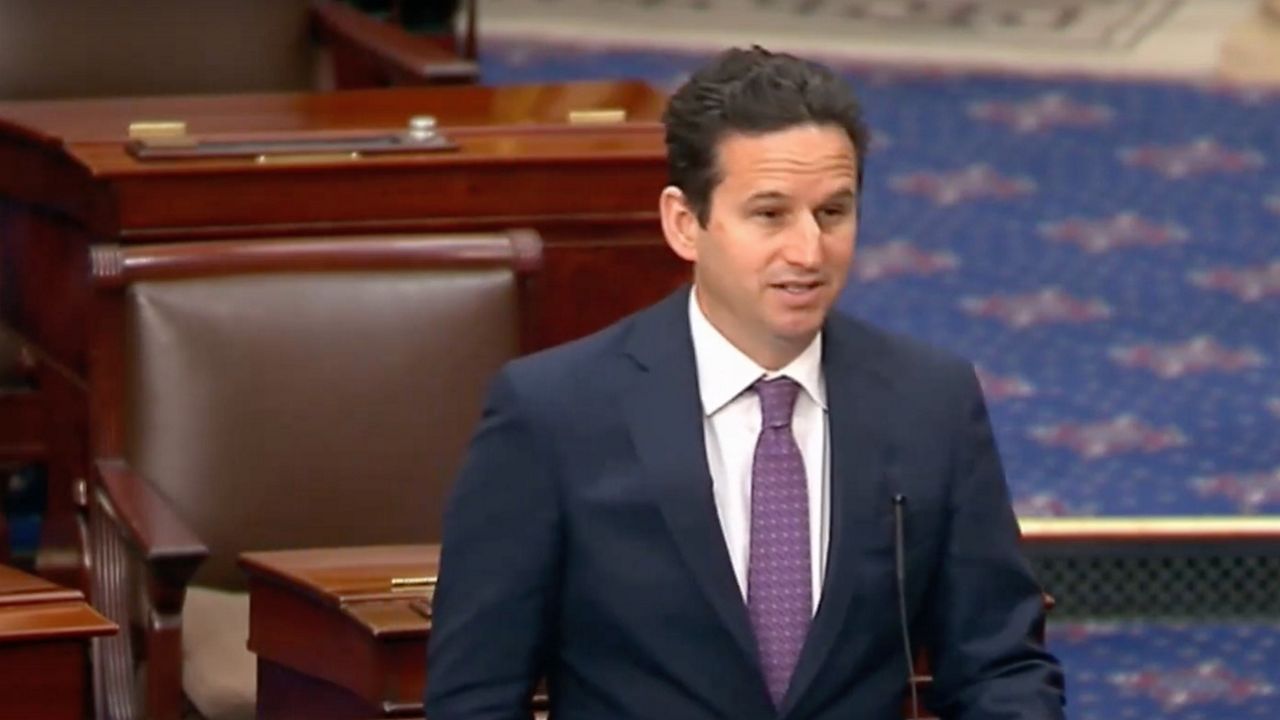WASHINGTON — More than five months after President Joe Biden submitted to Congress a domestic supplemental appropriations request that included recovery support for Maui and other disaster sites, U.S. Sen. Brian Schatz, D-Hawaii, took to the Senate floor on Wednesday to implore his colleagues to take action.
Besides support for specific disaster-recovery needs brought about by the Maui wildfires, the Guam typhoon, hurricanes in Florida and the Southwest and other recent disasters, the $56 billion request so includes funding for the federal Disaster Relief Fund; support for rural residents, farmers, schools, businesses and infrastructure affected by disasters
“We’ve waited a long time, but we can’t wait any longer,” Schatz said. “The disasters keep piling up, and with them, the urgent needs of survivors. People need help. And so we need to pass this supplemental and make sure all survivors are getting the relief they need. This is not each against all. We’re all in this together. Every community deserves help — and Congress must provide it.”
Schatz spoke on the ongoing challenges facing survivors of last year’s Maui wildfires.
“Eight months on from the devastating fires, the needs remain enormous,” he said. “Thousands of people are still living out of hotels and vacation rentals, unable to rebuild their lives. Roads and water systems have yet to be repaired. Small businesses and their employees continue to struggle without tourism.
“For Lahaina to recover, thousands of homes will need to be rebuilt,” Schatz continued. “Critical infrastructure will need to be restored. Businesses will need to get up and running again. So, Congress needs to step up and help here. That includes providing funding for the Community Development Block Grant Disaster Recovery — or CDBG-DR — program as the supplemental request calls for. CDBG-DR funding has long been a lifeline for families and small businesses rebuilding after disasters. Maui and countless other communities nationwide are now counting on that help."
In his remarks on the floor, Schatz, who chairs the Senate Appropriations Subcommittee on Transportation, Housing and Urban Development, also cited the recent collapse of the Francis Scott Key Bridge in Baltimore, which has impacted commercial traffic in and around the Port of Baltimore, as well as disasters in ongoing disaster recovery efforts in Florida, California, Vermont, Mississippi, Alabama, Arkansas, Alaska, South Dakota, Georgia, Illinois, Indiana and Tennessee.
“Recovering from a disaster, whether natural or manmade, is hard, it’s time-intensive, and it’s incredibly expensive,” Schatz said. “Surveying the damage in the immediate hours and days following the event; undertaking the complex and often dangerous process of debris removal; rebuilding homes, roads, schools and other essential infrastructure that were destroyed. Providing financial assistance to people, families, and small business owners who lost their jobs and livelihoods overnight. It takes months and years, and tremendous effort from thousands of people, to return these communities to anything close to normal.”
Schatz reminded his fellow senators that disaster recovery has traditionally been a bipartisan effort in Congress.
“We’re all in this together,” Schatz said. “No state or county, big or small, red or blue, wealthy or not, can shoulder the burden alone. When a disaster is so big, so catastrophic for any one state or locality to handle, it falls on the federal government to step up and help. It’s central to the promise of the federal government. We can argue about the size and scope of the government all we like — which programs to fund what levels to fund them at — but even the most libertarian among us can agree that helping our fellow Americans when they are in crisis, when they’ve lost everything and are desperate for support, helping them is patriotic and important.”
Michael Tsai covers local and state politics for Spectrum News Hawaii. He can be reached at michael.tsai@charter.com.



